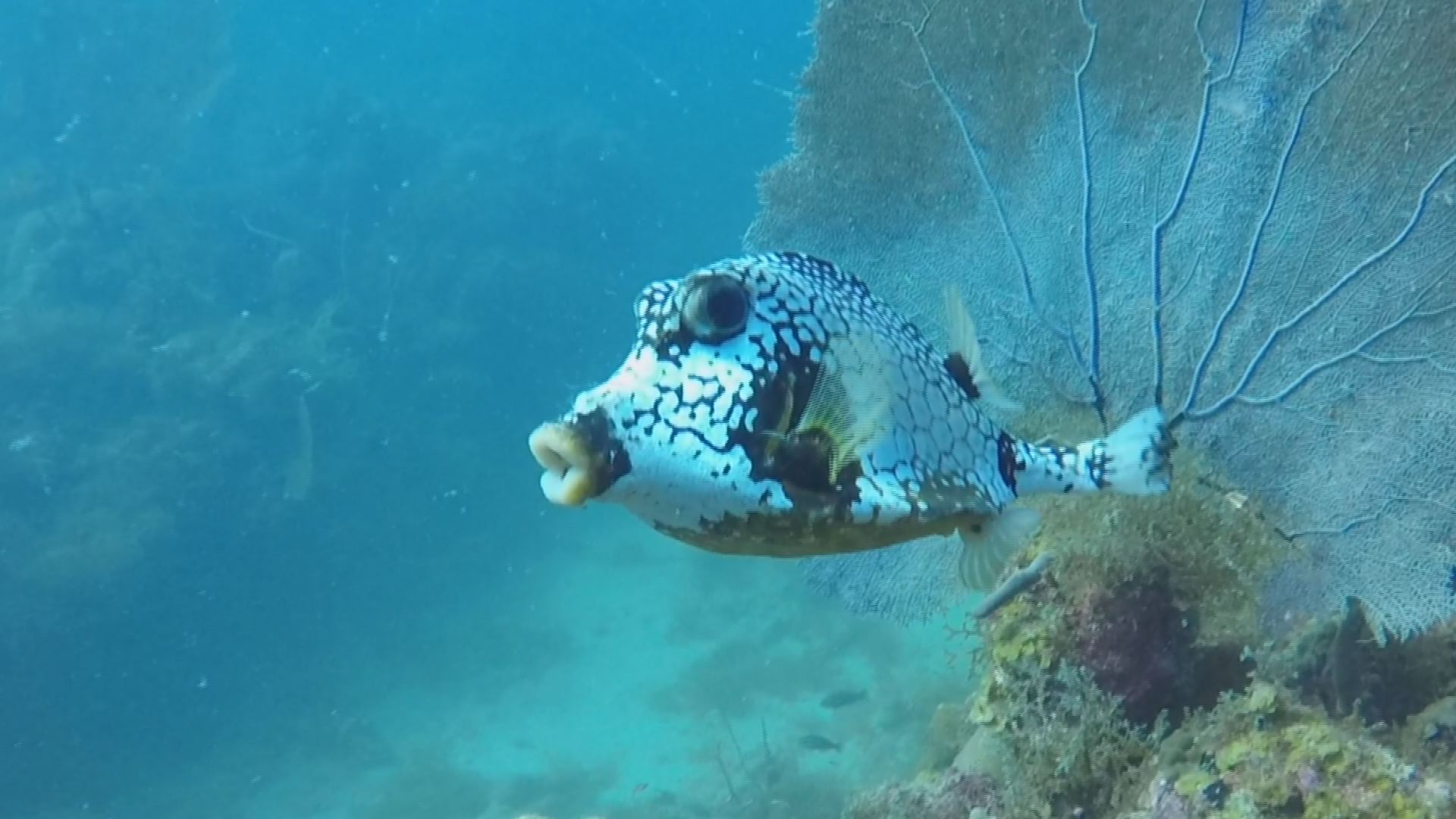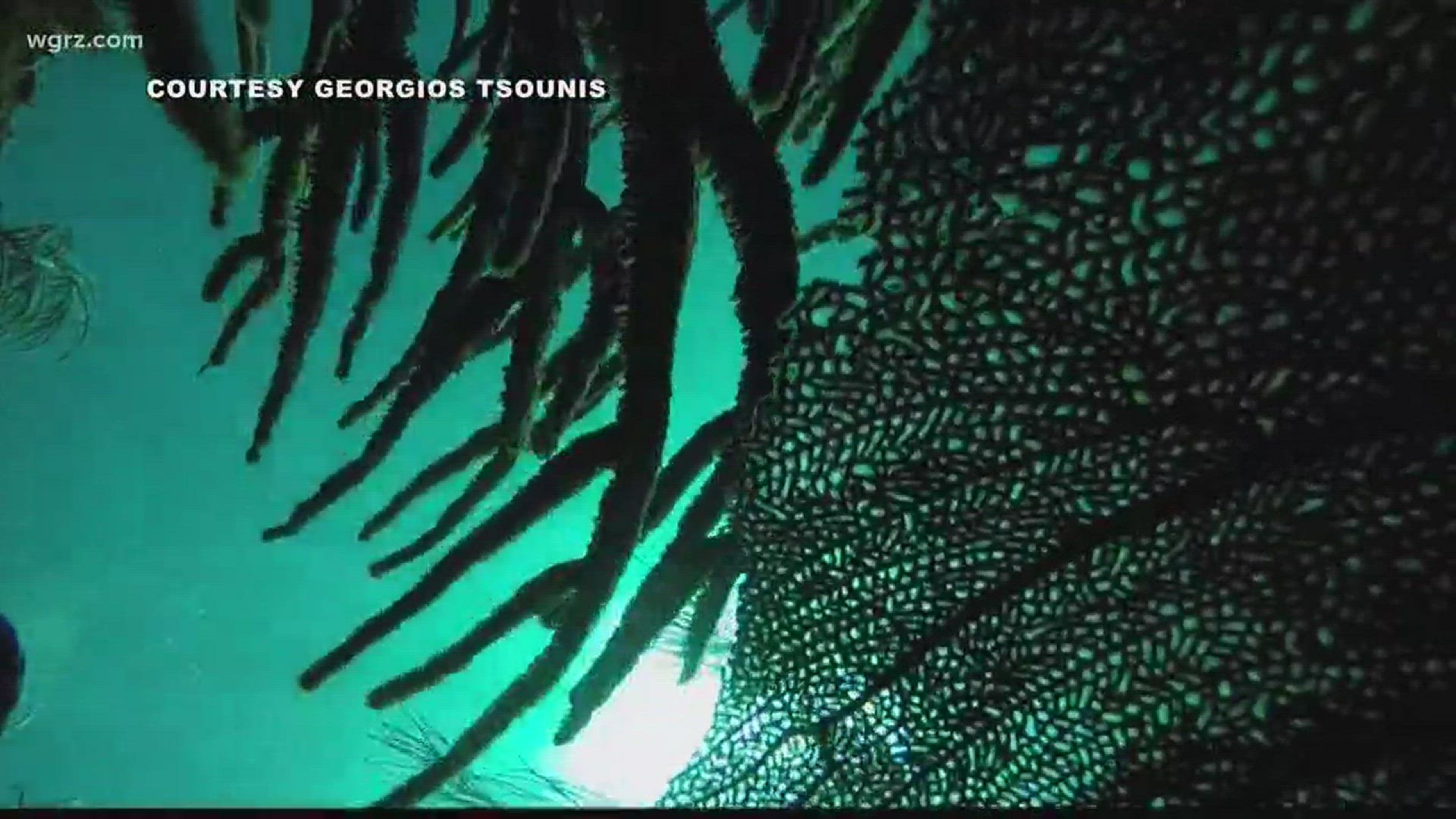UB Geophysical Science Professor, Howard Lasker, has been studying coral reefs for decades. He knows their incredible beauty well - and their importance to marine ecology.
"These are places of wonder!" says Lasker. "If you've never seen a reef, and you get in the water for the first time, you're just awestruck by just the array of shapes and colors and organisms that you've never seen before."
Dr. Lasker has also seen the menace to reefs worldwide. The beautiful but fragile ecosystems are under assault from a variety of threats, chief among them are the effects of human influence.
"At the very least it's a by-product of human activity. In that coral reefs, some may argue, have been in trouble for the last eighty, ninety, two hundred years depending on how you want to look at it - basically since Westerners have been extracting resources from them in a large way and changing their environment."
It didn't help the Caribbean reefs when major hurricanes blasted through earlier this year, and Lasker traveled to the region recently to assess the extent of the damage.
"Since we started off with some off the reefs that weren't too bad, I was initially relieved. And then as we looked further, I got to see more places where it was pretty, pretty shocking ."

Coral reefs play an important role in the aquatic environment. These complex ecosystems boast some of the richest biodiversity on the planet, and like the proverbial canary in the coal mine, the UB Professor believes their decline is an alarm for other species dependent on them.
"One of the things that happens as you lose the stony corals, is you lose that physical structure that's closely related to the diversity of the modal organisms that you see there - the fishes and the invertebrates - so that diversity and abundance starts dropping."
Though recovery of the reefs is expected, they will never be completely the same, never to be like they were centuries, or even decades ago. Each disaster deprives the planet of yet another amazing part of our natural heritage.
"Our world is profoundly...profoundly changing. And the fact that we ignore that, is something, well, is something we do at our own risk."

